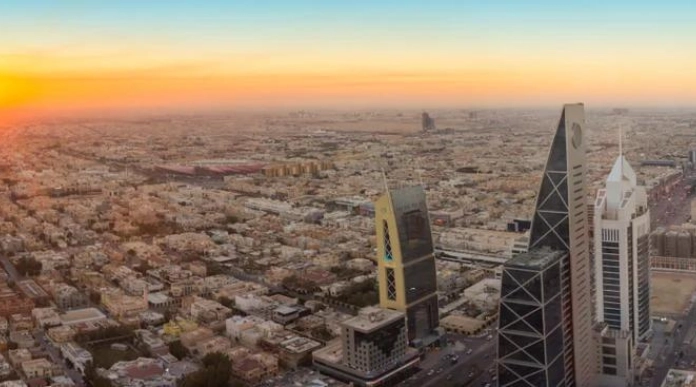Saudi Arabia’s bid to host the 2034 FIFA World Cup has sparked debates on whether they are fit to host this event or not. Few seem to be happy that the Middle East has cultural richness. However, many issues persist, specifically concerning security dangers. Since 2015, Saudi Arabia has faced over 60 terrorist attacks, primarily from groups like ISIS and Al-Qaeda, leading to more than 200 deaths, including both civilians and security personnel. Hosting the World Cup is a big responsibility, requiring a country to make sure the safety of many including the sports players and the crowd. In Saudi Arabia’s case, safety dangers pose a large challenge, making the country not worthy of this prestigious event.
Regional Instability and Terrorism Threats
Saudi Arabia is positioned in one of the riskiest regions in the world. Its geographic position inside the Middle East, surrounded by international locations dealing with political and military turmoil, will increase the probability of regional instability spilling over into the Kingdom. In 2022, Saudi Arabia’s percentile rank for political stability and absence of violence stood at 32.08%, placing the nation in the lower third globally. This suggests a moderate risk of instability and politically motivated violence.
The ongoing conflicts in neighbouring Yemen and Syria, tensions with Iran, and the wider presence of terrorist organizations inside the region create a precarious environment. These elements collectively pose large dangers to the security of visitors and individuals of the World Cup.
The Yemen Conflict
Since 2015, Saudi Arabia has been involved in a brutal battle in Yemen, where it leads a coalition fighting the Houthi rebels. This fight has now not only devastated Yemen but also exposed Saudi Arabia to missile and drone attacks by Houthi forces. Several high-profile attacks, including attacks on oil facilities such as Aramco in 2019, have verified the vulnerability of Saudi infrastructure.
The war has led to one of the world’s most severe humanitarian crises, with over 377,000 deaths linked to the conflict by the end of 2021. The blockade has drastically limited access to food, water, and medical supplies, pushing millions to the brink of famine. While the Saudi government defends its actions, the ongoing nature of the fighting and the potential for similar escalation makes it difficult to ensure the safety of website visitors during the World Cup.
Iranian Influence
Saudi Arabia and Iran have a long-standing political and spiritual rivalry, exacerbating tensions in the region. Although last-ditch diplomatic efforts have been made to de-escalate the anxieties between the two international locations, the ancient dispute may resurface at any time. Adding to the complexity is Iran’s assistance to proxy corporations inside the site, which include Hezbollah and the Houthis. Hosting an occasion like the FIFA World Cup under such conditions should initiate Iranian-aligned actors to target Saudi Arabia, turning the event into a dangerous political battleground.
Threats of terrorism
The Middle East is a hotbed of terrorist activity, and while Saudi Arabia has taken steps to combat extremism within its borders, the risks remain excessive. Terrorist companies including ISIS have previously targeted the kingdom. Given the global visibility of the World Cup, extremist organizations may want to see it as an opportunity to carry out attacks, using the platform of the occasion to attract interest to their cause. Additionally, despite heightened security measures, these companies may find ways to infiltrate or disrupt the match, putting fans and contributors worldwide at risk.
Freedom of Speech and Expression
Saudi Arabia is seen as a strict administration of free speech, with authorities regularly cracking down on dissent and criticism. Journalists, activists, or even social media users who speak out in opposition to the nation face jail time or worse. The hosting of the World Cup will attract international media, fans, and activists who may also seek to express their assessment of sensitive topics such as human rights, women’s rights, or LGBTQ issues. Homosexuality is illegal in Saudi Arabia and is punishable by imprisonment or possibly death. While FIFA has pushed for inclusion and anti-discrimination guidelines, the kingdom’s strict laws pose a serious problem.
Women’s Rights
Despite current reforms aimed at increasing the popularity of women in Saudi Arabia, gender equality remains a widespread problem. Still, women in Saudi Arabia face limitations in many areas of existence, which lie in the aid of male guardianship, which limits their independence. While girls are currently allowed to push and attend sporting events, societal pressures and legislation should make a girl’s transport experience unsafe or unwelcome. Additionally, this may discourage global fans, especially girls, from attending the occasion, or worse, lead to incidents of harassment or ill-treatment, further undermining Saudi Arabia’s ability to effectively host a global event.
Inexperience with international sporting events
Unlike countries like Germany, Brazil, or even Qatar, Saudi Arabia has limited itself to reveling in websites hosting worldwide activities associated with wearing important to the World Cup. Although the country hosts Formula 1 races and various transport competitions, these occasions are much smaller in scale compared to the monthly tournament that attracts thousands and thousands of site visitors. This inexperience should lead to logistical and security oversights, which increase the likelihood of incidents.
Reputational risks for FIFA
Apart from direct security concerns, hosting the World Cup in Saudi Arabia would pose a reputational risk to FIFA. The business has faced massive criticism in the past for preferring to host international locations, notably Qatar for the 2022 FIFA World Cup. By choosing Saudi Arabia, FIFA risks joining a kingdom that has faced considerable criticism for its human rights record, lack of freedoms, and repressive government. Such a flow should discourage enthusiasts, players, and sponsors and further tarnish FIFA’s already fragile reputation.
Conclusion
Saudi Arabia aims to rebuild itself directly into an international hub through the FIFA World Cup 2034. However, its security dangers, both internal and external, make it the wrong host for the 2034 FIFA World Cup. From the risk of local instability and terrorism to a lack of experience with large-scale events, Saudi Arabia faces many challenges in ensuring the protection of fans, players, and officials. The FIFA World Cup is not just an occasion – it is a global celebration and the protection and safety of all members must be a top priority. Unfortunately, Saudi Arabia’s current environment presents too many risks to provide this guarantee.











